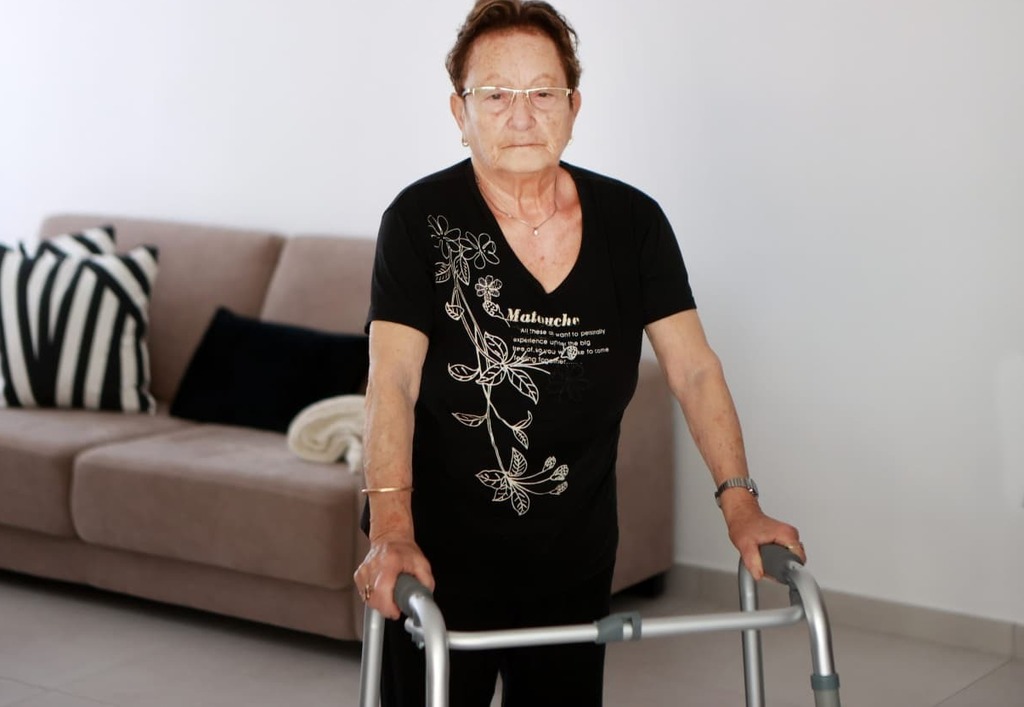As Israel enters its second week of fighting in Gaza, the government has praised the public's "resilience" when it comes to dealing with the relentless rocket attacks. But there is a group of people who are unable to protect themselves and are not given any tools by the authorities to do so. It is a group that no one is talking about - the disabled.
Meet Stella Ben Hamo. In her second floor living room in Ashkelon, the 82-year-old woman sits with her eyes peeled towards the south.
"I look on and pray rockets do not come north and destroy my house," she says. "I can no longer hear the wail of the sirens without shaking. I stand under the doorway, which is the safest place available. I can't go downstairs to the public shelter. I am in hell," she says.
Ben Hamo, who uses a walker to help her get around, is one of thousands of residents of the south, many her neighbors in Ashkelon, who are unable to reach shelters because of physical disabilities or advanced age.
More than 40,000 residents of the city live in old structures that have no shelters that can be reached in 30 seconds - the time it takes for rockets to reach Ashkelon from Gaza. Many have nowhere else to go. Some have been sleeping in public shelters for days, fearing the intense barrages, which have become all too common in this round of fighting.
5 View gallery
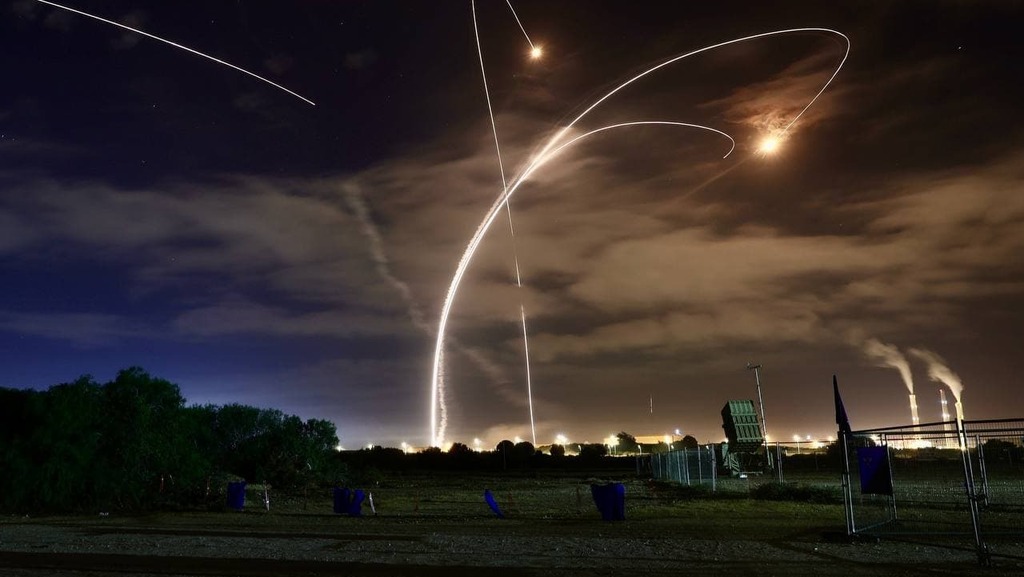

The Iron Dome intercepts rockets from Gaza in the sky over Ashkelon earlier this week
(Photo: Tal Shahar)
The coastal city was struck by over 800 rockets since the latest round of fighting began last Monday. At least 69 landed inside the city, causing deaths, injuries and destruction.
Ruth Ben, Stella's neighbor, says she does not remember such intense rocket fire on her city. "I've been here 30 years and it was never this bad," she says. "I have no where to go. I am afraid that if I try to get down to the public shelter outside, I might fall. Anyway, it would take me longer than it takes the rockets to hit. So, I just sit and pray," she adds.
Their part of the city is also home to many new immigrants from Ethiopia. A single mother who has been living in the public shelter with her daughter for days, says the city told them to leave their homes but has not supplied them with food or water.
"It took us days to get them to put air-conditioning in because the heat down there was unbearable," she says. "Why do we have to be treated like second class citizens and suffer this nightmare?
5 View gallery
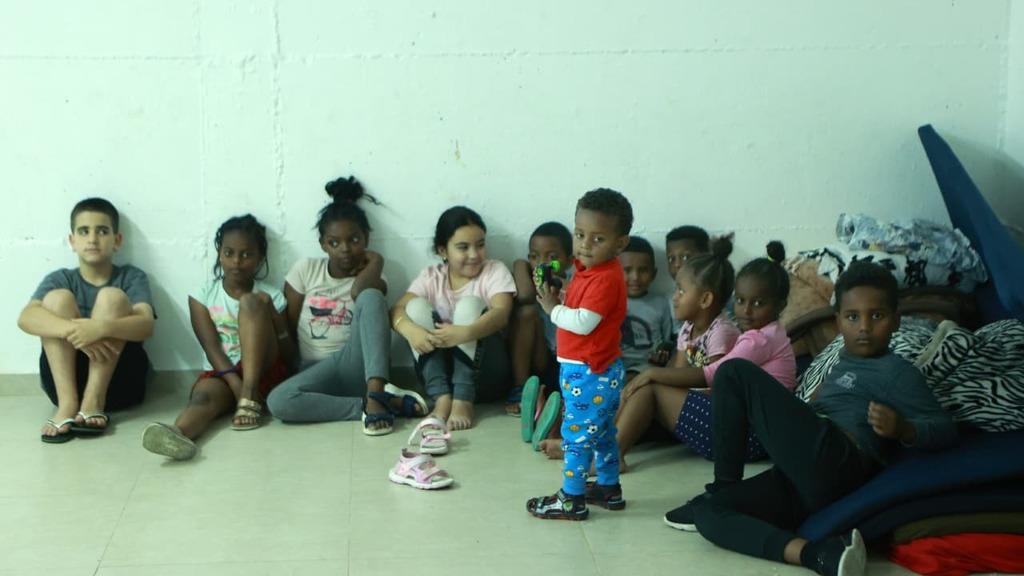

Ethiopian immigrant children who have been living in a bomb shelter in Ashkelon since the rocket fire began
(Photo: Amit Shaal)
"We've been living in structures built in the 1980's," another man says. "No one found the time or money to renovate and provide us with shelters no matter how much we've begged and shouted. No one listened to us. What are they waiting for? A disaster?"
Sima Faraj Revach, another resident of the city, lives with her 32-year-old daughter and 30-yearold son. Both suffer from Cerebral Palsy.
"We have no shelter or secure space," she says. "We have 20 seconds to move two wheelchairs into the safest room in the apartment from the moment we hear the sirens and until the rockets strike, but that is not long enough. I am constantly calculating distances and am exhausted, but we have nowhere to go," she says.
5 View gallery
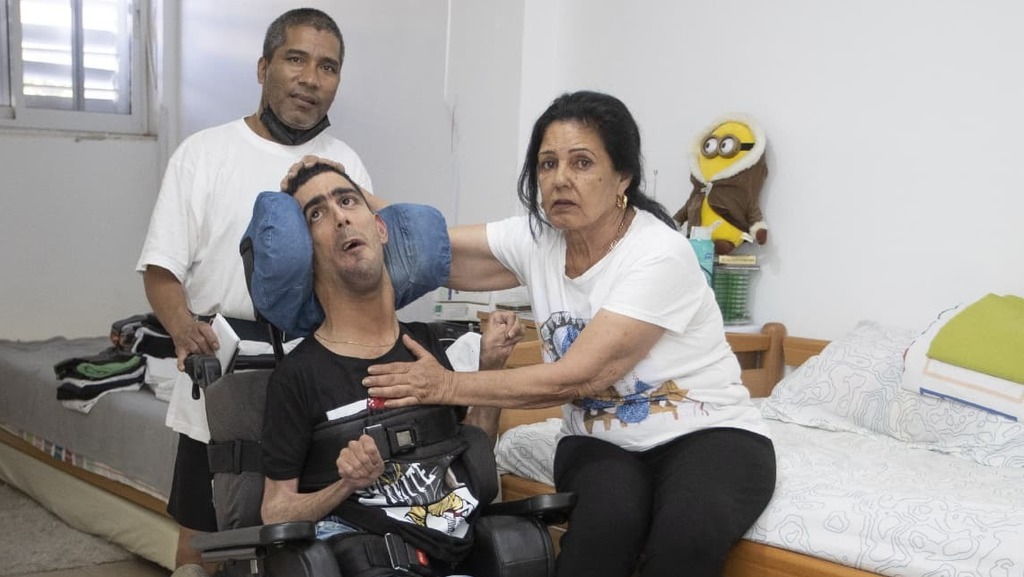

Sima Faraj, a resident of Ashkelon with her son who suffers from Cerebral Palsy and his care giver at their home
(Photo: Gil Nechushtan)
Yair Markus, who also lives in Ashkelon, is blind from birth. He is a relative newcomer to the city and is experiencing his first Gaza war so close to the border. Due to constant rocket attacks, he says he rarely goes outside. "I am afraid I will not be able to reach a shelter if I leave home. We have less than 30 seconds," Markus says, adding he has not grown accustomed to living under fire.
Ayelet Elbaz has also stayed inside her home since the rocket fire began. Her 4-year-old son, one of her four children, is autistic. "He shuts down when he hears the siren. He freezes and must be taken to the protected room," she says.
"I'm afraid we would not make it in time on his own, so I sit with the kids outside the room. I don't cook or clean. We just live inside the room."
5 View gallery
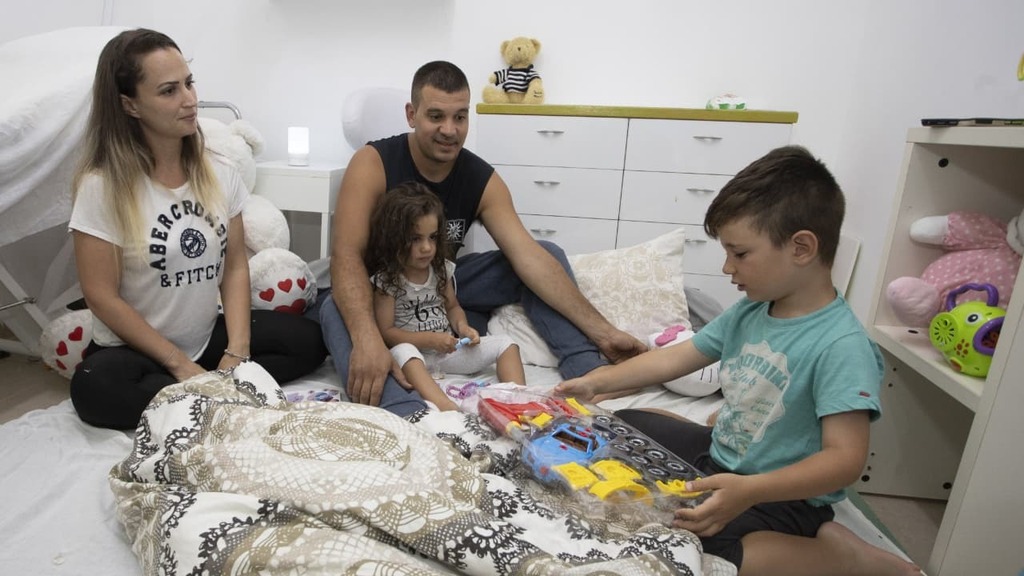

Ayelt Elbaz with her family including her 4-year-old autistic son in their protected room in Ashkelon
(Photo: Gil Nechushtan)
Lavi Naor is a spokesperson for an advocacy group providing disabled Israelis with support.
He said he warned of the difficulties disabled people will be facing when the fighting first erupted, but the warnings fell on deaf ears. "Unfortunately, no one is willing to assume responsibility, " he says.
Just last Saturday, a disabled man was killed in Ramat Gan by shrapnel when a rocket from Gaza fell near his groundfloor apartment, because he could not get to shelter on time.


